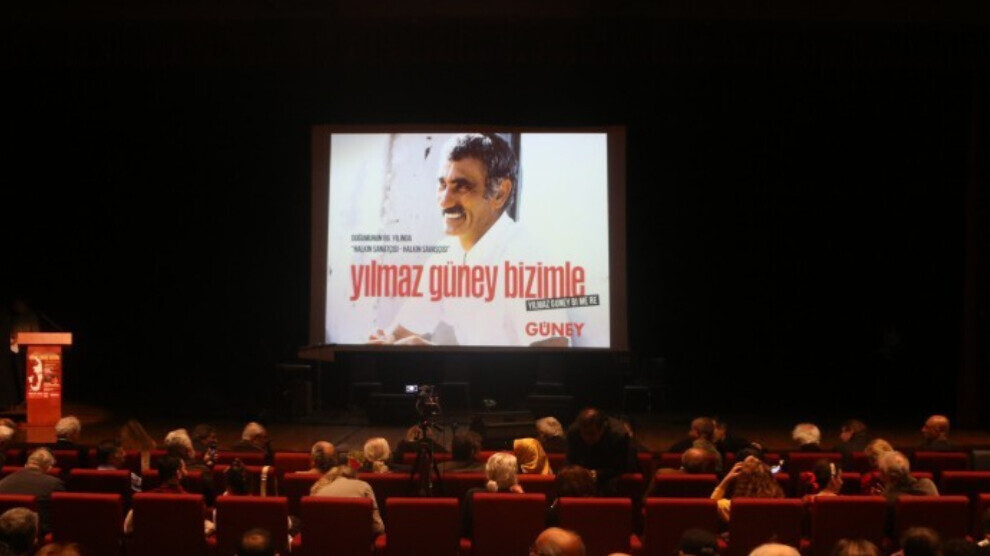Speaking at the event held on the 86th anniversary of Kurdish director Yılmaz Güney’s birth, his wife Fatoş Güney said that the ban and censorship imposed on his films following his death is being maintained by the AKP government today.
Kurdish director and screenwriter Yılmaz Güney, who won the Palme d’Or at the Cannes Film Festival in France in 1982 with his movie “Yol – The Road” and known as the “Ugly King” of cinema, was commemorated on his 86th birthday with the program “People’s Artist, People’s Warrior”.
Many representatives of political parties and civil society organizations attended the commemoration program organized by Güney Magazine at the Cemil Candaş City Cultural Center. The hall was filled with those who loved Yılmaz Güney.
Fatoş Güney, the director’s wife, editor-in-chief of Güney Magazine, Tuncay Özkaradeniz, writer Temel Demirer and writer Pakrat Estukyan attended the commemoration program hosted by Burcu Özkaradeniz, also from Güney magazine.
Speaking at the commemoration ceremony, Fatoş Güney said that Yılmaz Güney was exposed to “rule” order practices in Turkey. Güney said that “while the 27 May 1960 Coup was presented as the road to freedom, Yılmaz was sentenced to 2 years in prison for making ‘communist propaganda’ in a story he wrote when he was still in his 20s. Then he was sentenced to exile for 6 months. He was imprisoned in Selimiye Military jail for 2 years after being tried for 15 years for helping revolutionary students with money and weapons and hiding Mahir Çayan and his friends in our house during the 12 March 1972 Coup. Following the coup of 12 September 1980, he had to leave his country because he was sentenced to 100 years for his articles in Güney magazine.”
‘Yilmaz Güney still censored’
Pointing out that various punishments and bans were imposed on Yılmaz Güney after his death in 1984, his wife pointed out that the censorship continues under the current AKP-MHP government. “While the screening of Yılmaz’s films was banned during the Kenan Evren junta, even mentioning his name was considered a crime. Later, these bans would continue as self-censorship. In other words, institutions and televisions would keep the ban alive even and they would never show Yılmaz Güney films. Yılmaz Güney’s films would not be shown during the Recep Tayyip regime, and his ideas would be banned.”
After Güney’s speech, the commemoration program continued with the screening of a documentary about the great director.





